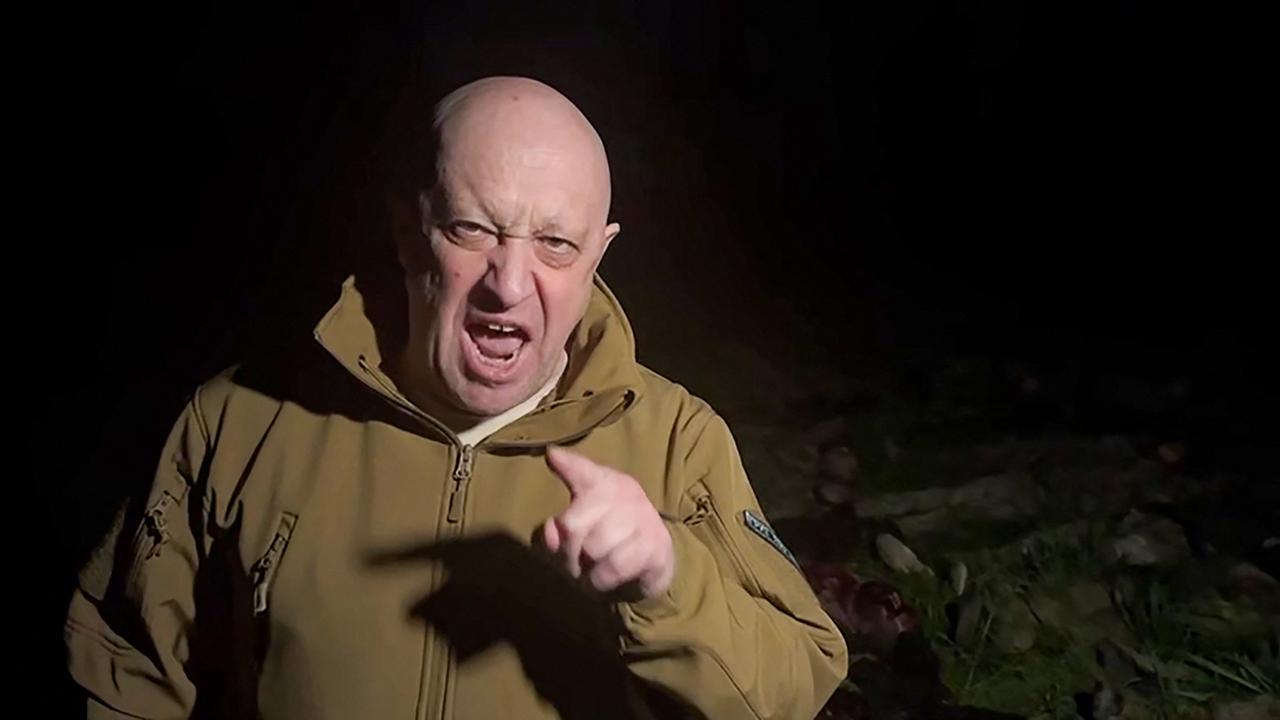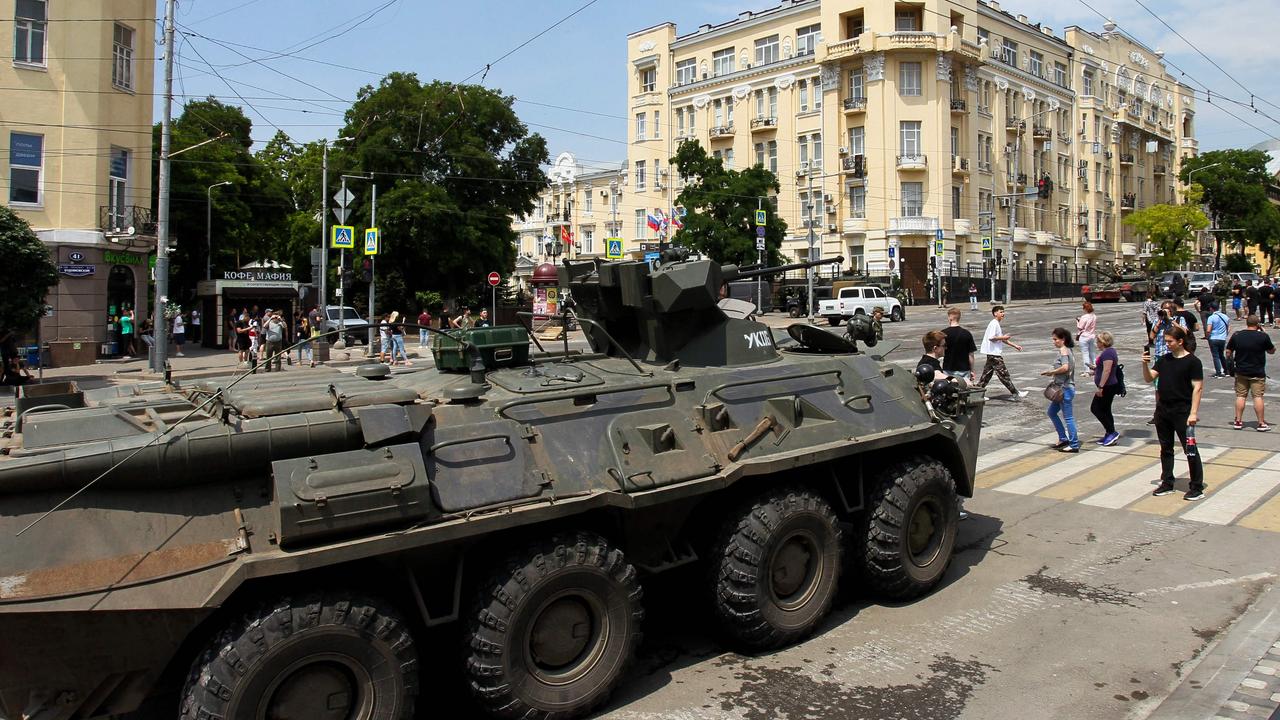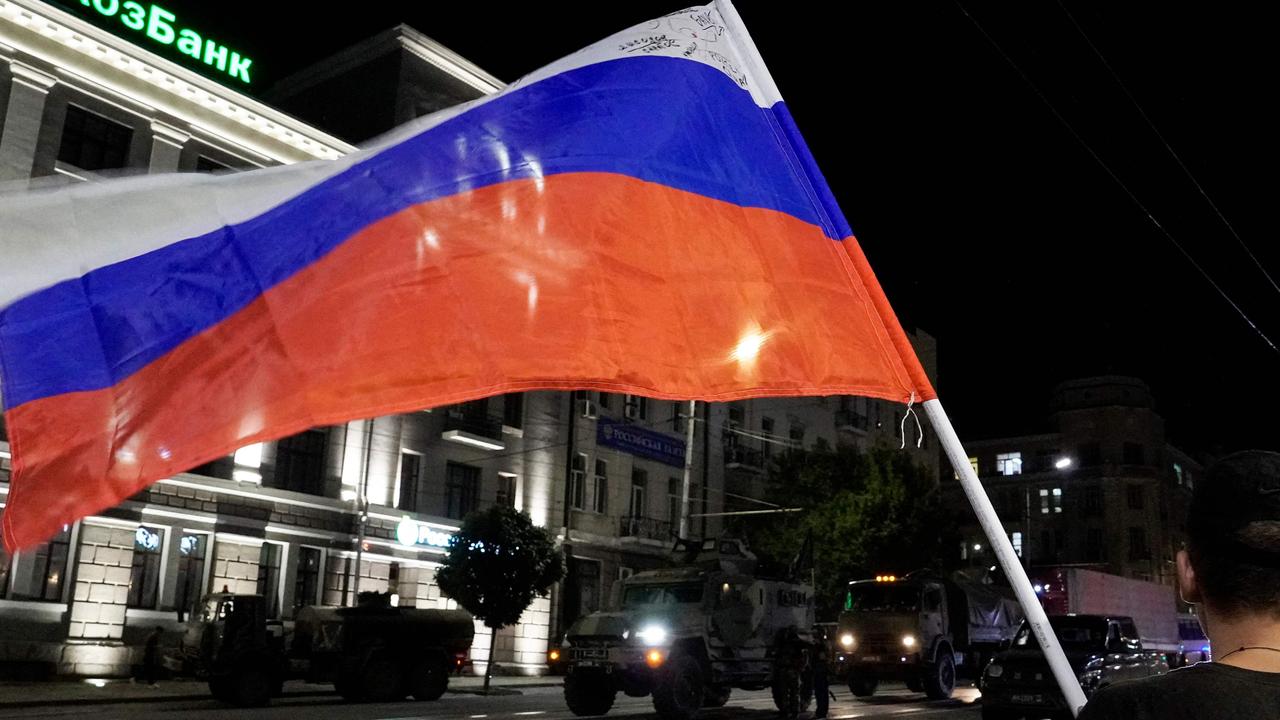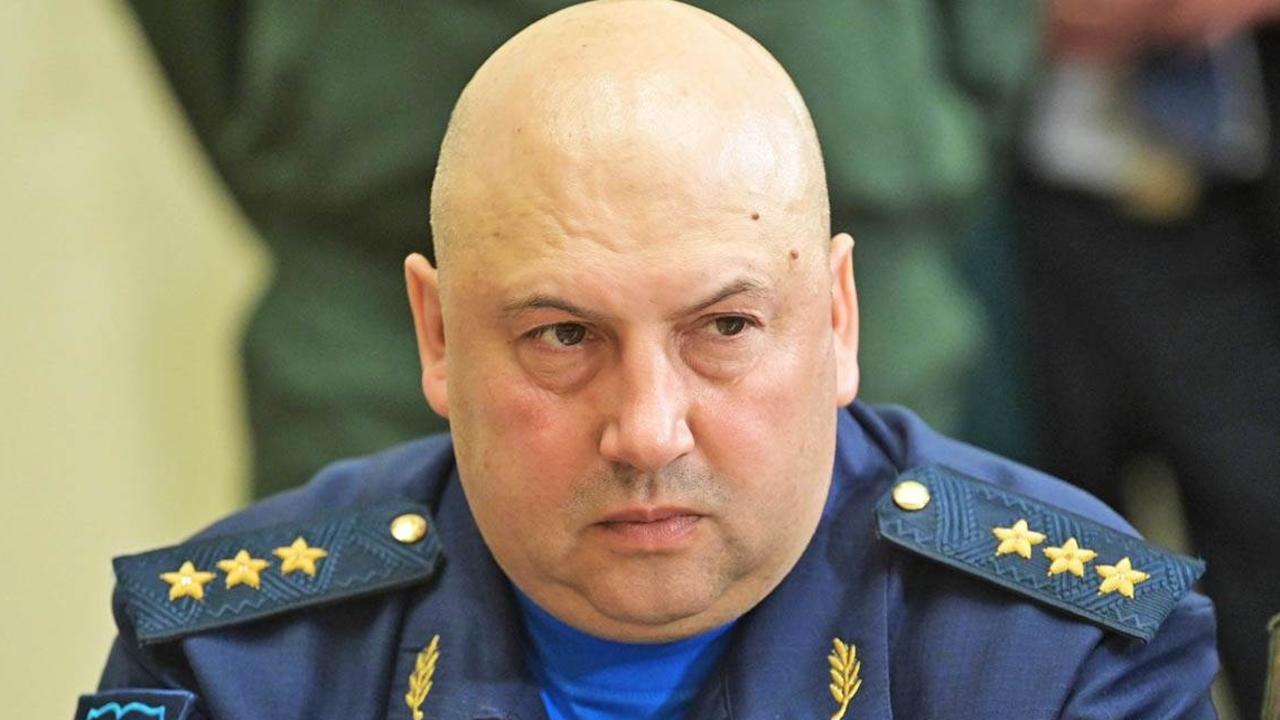
This article is more than
2 year oldWhere are they?
Moscow’s highest-profile oligarchs are laying low – either in hiding or behind bars in secret police prisons – as the hunt to weed out sympathisers of a failed coup attempt gains pace.
The mutiny by mercenary war lord Yevgeny Prigozhin collapsed as quickly as it began.
But it’s the ease of Wagner’s capture of the city of Rostov-on-Don and driving thousands of troops towards the Russian capital that has many suspecting he had inside help.
That includes President Vladimir Putin’s personal secret police, the FSB.
The embattled leader has repeatedly implied he would hunt down and punish all involved in the June 23 revolt.
Now, high-profile military commanders and public officials are disappearing from public view.
“The armed insurgency by the Wagner mercenary group has become a pretext for a massive purge in the ranks of the Russian armed forces,” states the Rybar Telegram channel run by former Kremlin defence official Vladimir Romanov.

And the Institute for the Study of War (ISW) states that several close associates of Putin’s key suspects – including ‘General Armageddon’ Sergei Surovikin – have been accused of “complicity”, with Prigozhin’s revolt “possibly indicating that the Kremlin intends to purge the MoD (Ministry of Defence) of figures viewed as disloyal”.
International affairs analysts believe Prigozhin would not have initiated his mutiny unless he believed he had the support of powerful military, intelligence and civilian officials.
That support, however, did not rise to the occasion when he launched his armed rebellion.
But Putin’s supporters immediately put the spotlight on all who have expressed contempt for Defence Minister Sergei Shoigu and General Valery Gerasimov, the chief of Russia’s General Staff.
And Putin is attempting to spin the coup as being triggered by “external forces”, and that its failure proved “the Russian people are more consolidated than ever”.
“The unity and high responsibility for the fate of the country was clearly demonstrated by the Russian political circles and the whole of society in uniting against the attempted armed rebellion,” he told a recent China-led economic gathering.
He did not address the internal strife and chaos that led to the revolt.

Game of Thrones
Some military analysts believe Prigozhin timed his revolt to coincide with a planned visit by Shoigu and Gerasimov to the Rostov-on-Don Ukraine war command centre.
But the Federal Security Service (FSB) reportedly got wind of their planned abduction and cancelled the trip at the last moment.
Defence Minister Sergei Shoigu has long been one of Putin’s highest-profile personal friends. For example, he’s been pictured with the autocrat on his shirtless Siberian hunting expeditions.
But Prigozhin has aggressively blamed Shoigu for the entrenched corruption and poor readiness within Russia’s formal military. And he accuses the powerbroker of deceiving Putin into launching the Ukraine war to suit his personal agendas.
Prigozhin has pushed Colonel General Mikhail Mizintsev as a candidate for the Defence Minister job. And he’s backed General Sergei Surovikin – who served as Russia’s overall leader of the war in Ukraine between October and January – as the new Chief of General Staff.
Instead, both have fallen victim to Kremlin power struggles in recent months.
Now, The Moscow Times cites Russian Defence Ministry sources as saying Surovikin has been arrested for his links to Wagner – despite taking to the airwaves in the opening hours of the mutiny to call on the mercenaries to stand down.
And the ISW states the simple fact Surovikin has “notable Wagner affiliations” makes him a “prime candidate for a scapegoat regardless of the actual level of support he gave to the rebellion”.


Putin’s purge: Who to watch
General Mikhail Mizintsev: Dubbed the “Butcher of Mariupol” for his bloody siege of the Azov Sea city in 2022, Mizintsev joined Wagner in May.
This was immediately after he had been sacked by Shoigu as deputy defence minister in April. Mizintsev is believed to have provided Wagner with vital ammunition and supplies from Russian army stockpiles.
A lack of such supplies was one of the key reasons given by Prigozhin for his uprising.
Chief of General Staff Valery Gerasimov: Gerasimov is supposed to be a Putin favourite – but then, so was Prigozhin.
However, the personal clash between the two warlords may have been a bridge too far for Russia’s latest Ukraine war supreme commander.
His six-month tenure as commander has seen Ukraine launch a powerful counteroffensive against Russian occupational forces and the Wagner revolt.
And while he has never held a high public profile, he has not been seen publicly since the uprising and was a notable absentee from Kremlin ceremonies.
Defence Minister Sergei Shoigu: Shoigu is one of Putin’s oldest friends. He’s also been the target of aggressive criticism by Prigozhin and pro-war nationalists for the failure of the Ukraine invasion.
His move to force Wagner mercenaries to become sworn members of the formal military caused Prigozhin to fear losing control of his personal army.
And while he’s been seen at a handful of functions with Putin, he has not appeared alone or spoken in public.
General Surovikin: He appears to have been detained the day after the failed uprising.
This is despite his appearance in a video where he called for Wagner to stand down, backing President Putin’s line that the rebellion assisted Russia’s enemies.

He’s not been seen since, though his daughter has reportedly said she’s been in contact with him and that he has not been detained.
Surovkin and Prigozhin go way back.
Both were heavily involved in Putin’s 2015 Syrian intervention.
Prigozhin’s Wagner Group used the “plausible deniability” of its mercenary status to train, advise and fight alongside Syrian dictator Bashar al-Assad’s remaining loyal troops.
Surovkin led the deployment of Russia’s air force to Syria’s Khmeimim Air Base, from where it launched a sustained bombing campaign and operated in concert with Wagner ground troops.
Prigozhin had been part of a move in October last year to install Surovkin as the overall “Special Military Operation” commander in place of Colonel General Gennady Zhidko after the rout of Russia’s initial rush on Kyiv.
A key feature of his command was the strategy of bombing Ukrainian electrical infrastructure before the onset of winter.
On January 11, he was stood aside from the top job and placed under the command of General Gerasimov.
Jamie Seidel is a freelance writer | @JamieSeidel